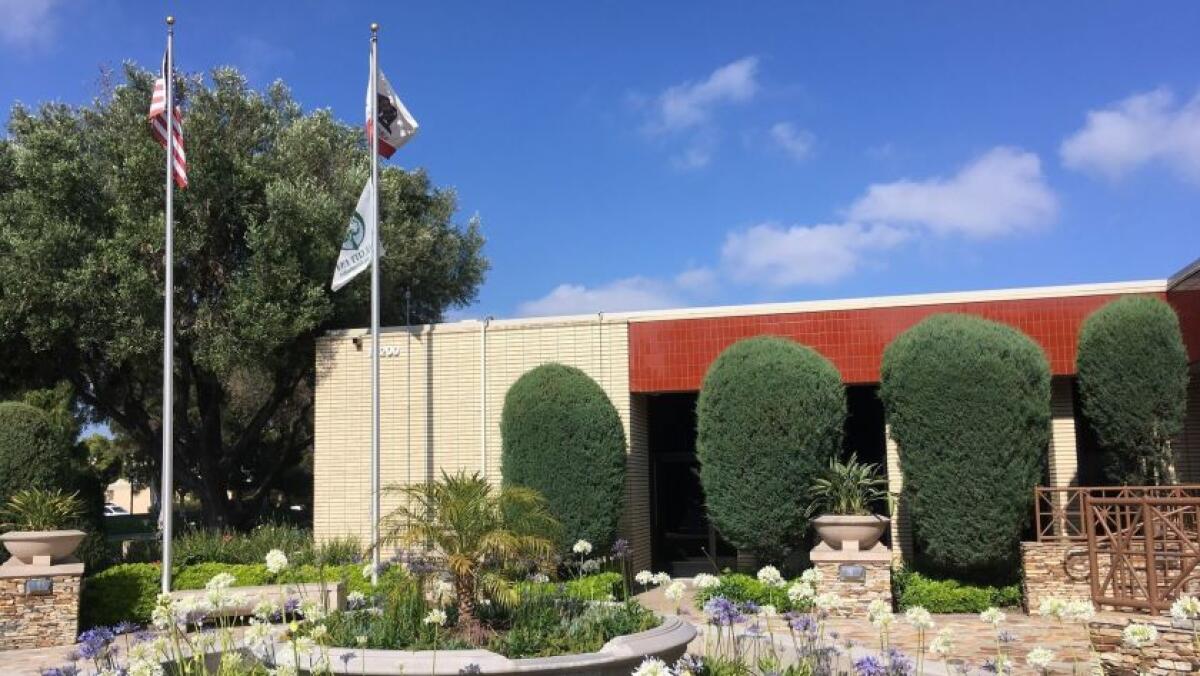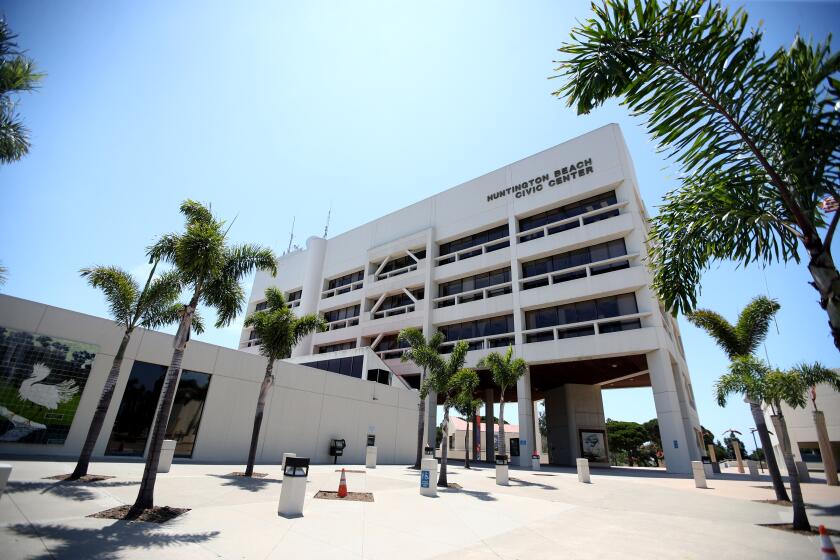Fountain Valley passes ordinance to regulate sober living homes

- Share via
Fountain Valley residents have raised concerns over the growing presence of sober living homes in their community, leading to the City Council’s decision to move forward with an ordinance to regulate them.
The ordinance first came to the panel on Sept. 19, and after being approved initially, the item was continued by a split majority at its second reading. It was back at the council at the Jan. 30 meeting.
Sober living homes are intended to provide a residential space for people with alcohol or drug addiction, where they can stay clean and participate in a recovery program, but Councilman Patrick Harper warned against bad operators.
“There is a genuine need for [sober living homes] in the city, as long as they’re good operators,” Harper said. “This ordinance is to try to regulate and protect the residents, not only the neighbors but also the residents that are in these facilities, to make sure they’re getting the treatment that they should be.
“I realize it would be great to wait for the model ordinance, but there’s an old saying, ‘Don’t let the perfect be the enemy of the good.’ It’s a good ordinance. It’s modeled after Costa Mesa’s and survived a lot of litigation.”
U.S. District Judge James Selna ruled for Costa Mesa against Southern California Recovery Centers, which operated three sober-living homes in the city and sued to challenge its ordinances governing such facilities.
Council members unanimously approved the ordinance, albeit with some apprehension that it could expose the city to a lawsuit.
The ordinance will not affect facilities licensed by the state. Group homes of six or fewer residents will be required to obtain a special use permit. Those with seven or more residents must obtain a conditional use permit and an operator’s permit, and they will not be permitted in areas zoned for single-family residential units. Permits will not be issued for a facility if it is within 650 feet of another sober living home.
The residents of a sober living home, aside from the manager, must be actively participating in a recovery program. All residents are prohibited from consuming alcohol or nonprescription drugs.
Public input largely called attention to issues related to public safety and neighborhood nuisance. The comments opened with a jarring account from a mother saying her children were followed home.
“My 12-year-old son … with my 4-year-old daughter and three other young boys from our neighborhood were approached by a man riding an electric bike who said, ‘I’m going to follow you all home,’ in a creepy way,” she said, describing a recent encounter in January. “When the three boys took off, the stranger followed them.”
The distressed mother said her kids hid behind cars in a driveway until they felt it was safe to go home. Then the stranger came back toward them before they could enter their neighborhood street.
“My kids ran terrified into my house, screaming that a creepy guy had chased them home, and he was in our frontyard,” she continued. “I ran outside, the guy took off, and I followed him in my car as he disappeared around one of the sober living homes. When the police asked my son what he felt the man’s intentions were, it was painful to hear him say, ‘I absolutely thought he was going to kidnap my little sister from me.’”
Additional concerns included a rampant smell of marijuana around sober living homes, noise complaints, bad operators failing to manage the properties, and a strain on local resources that included calls for service to the police department to address related issues.
Resident Evan Jorgensen pointed to one example of an accessory dwelling unit being built at a sober living home, arguing it constituted two such dwellings too close in proximity.
“We need to space out these houses, whether they’re licensed or not,” Jorgensen said. “They’re all the same use. Otherwise, the neighborhood becomes institutionalized, and that’s a goal that the ordinance seeks to avoid.”
Councilman Jim Cunneen indicated he and Harper were not in favor of the preceding 90-day continuance, and he urged his colleagues to adopt the ordinance.
“I cannot imagine going through what I’ve been hearing from you all, and I also get calls from residents about the same issues,” Cunneen said. “I appreciate that there were 11 [people] speaking tonight, but I’m sure there’s a much bigger group that has the same mindset.”
At one point, a resident asked how many sober living homes were in the city. Mayor Glenn Grandis responded a list indicated the city was aware of 35.
The ordinance, which takes effect 30 days from its approval, also requires existing group homes to apply for a special use permit within 90 days of its going into effect. A reasonable accommodation provision allows for an operator to seek relief from any section of the ordinance.
Grandis requested the council consider partnering with other cities to share the cost of defending an ordinance, should a task force on sober living home accountability come forth with a new one.
“Let’s put in what we have now,” Grandis said. “It’s not great. I’m not thrilled. I don’t think it’s going to solve the problems of what you guys were all speaking about, but it’s better than nothing.”
All the latest on Orange County from Orange County.
Get our free TimesOC newsletter.
You may occasionally receive promotional content from the Daily Pilot.




